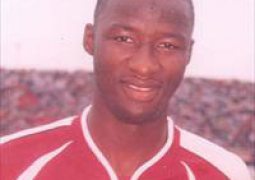Last Saturday, the President of the United States of America Mr. Barack Obama visited Ghana in a one-day stay. It was his first visit to sub-Saharan Africa since taking office. During his stay in the Ghanaian capital Accra, he made important remarks on how to move Africa forward. "Africa's future is up to Africans," he said, apparently urging Africans to move beyond colonialism and lift the continent out of poverty, misery and wars.
This has always been the position of this paper. This paper has insisted consistently that Africans at all levels must take responsibility for the progress of the continent. Colonialism-bashing, in our opinion, is like playing the ostrich. Africans must be wide awake to take head-on the problems confronting the continent; no-one else is going to do that for the people of the continent. Other victims of colonialism have been able to slough off its shackles to find their own bearings. Why is it taking Africans so long to do likewise? To put it bluntly, the trouble with Africa is inept and misguided leadership.
This is just a variation of Mr. Obama's other standpoint that "development is dependent upon good governance." This underlines the imperative of an open society where transparency, accountability, and the rule of law prevail at all times. "Africa doesn't need strongmen; it needs strong institutions," he emphasized. Strongmen are able to take charge in most of Africa because the institutions are weak, vulnerable and are therefore manipulated to serve the damnable ambitions of the so-called Africa's strongmen. Brutality, despotism, megalomania, repression, impunity are now outmoded in the 21st century. Those who still cling to such retrogressive vices are seen as anachronisms, best suited for the Medieval Age.
The 21st century is the age of democratic values characterized by "free press, independent judges, strong parliaments and honest police". This explains why Ghana is chosen out of the lot to play host to the president of the United States. As far as we can tell, Ghana is a beacon of democracy in sub-Saharan Africa and therefore a model for the rest of the continent in their quest to be in tune with the zeitgeist of the 21st century - good governance based on a free press and an independent judiciary. "No person wants to live in a society where the rule of law gives way to the rule of brutality and bribery. That is not democracy; that is tyranny," Mr Obama said.
It is also clear from the Obama speech that a people deserve the sort of leaders they get. "You (the African people) have the power to hold your leaders accountable, and to build institutions that serve the people," he said. Citizens can achieve this worthy goal by taking their civic duties seriously; by demanding of their leaders during elections to spell out their manifestos, and by voting on the strength of a candidate's manifesto, not on the basis of frivolous affiliations or considerations. They should also show greater interest in how they are governed and work to strengthen the independent media that serve as the interface between the leaders and the people.
It is on these and only on these terms that Africa can make a quantum leap and benefit from the bounties offered by the 21st century.
African leaders must ensure that their respective countries stick to term limits as stipulated in their constitutions. Overstaying in power has always been the case in many African countries which often lead to unnecessary conflicts.
"Good governance could never be a substitute for government by the people themselves"
Sir Henry Campbell-Bannerman



